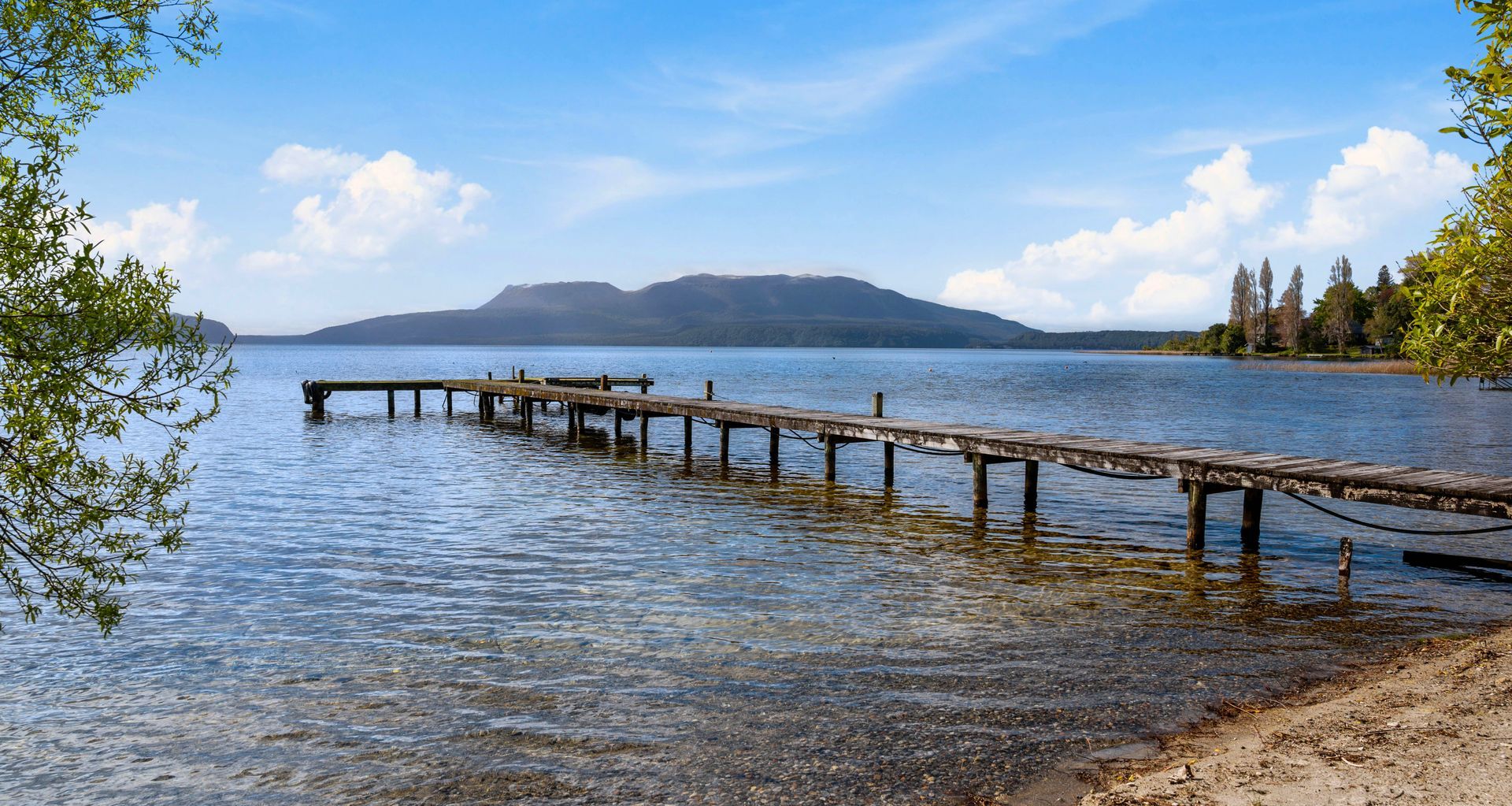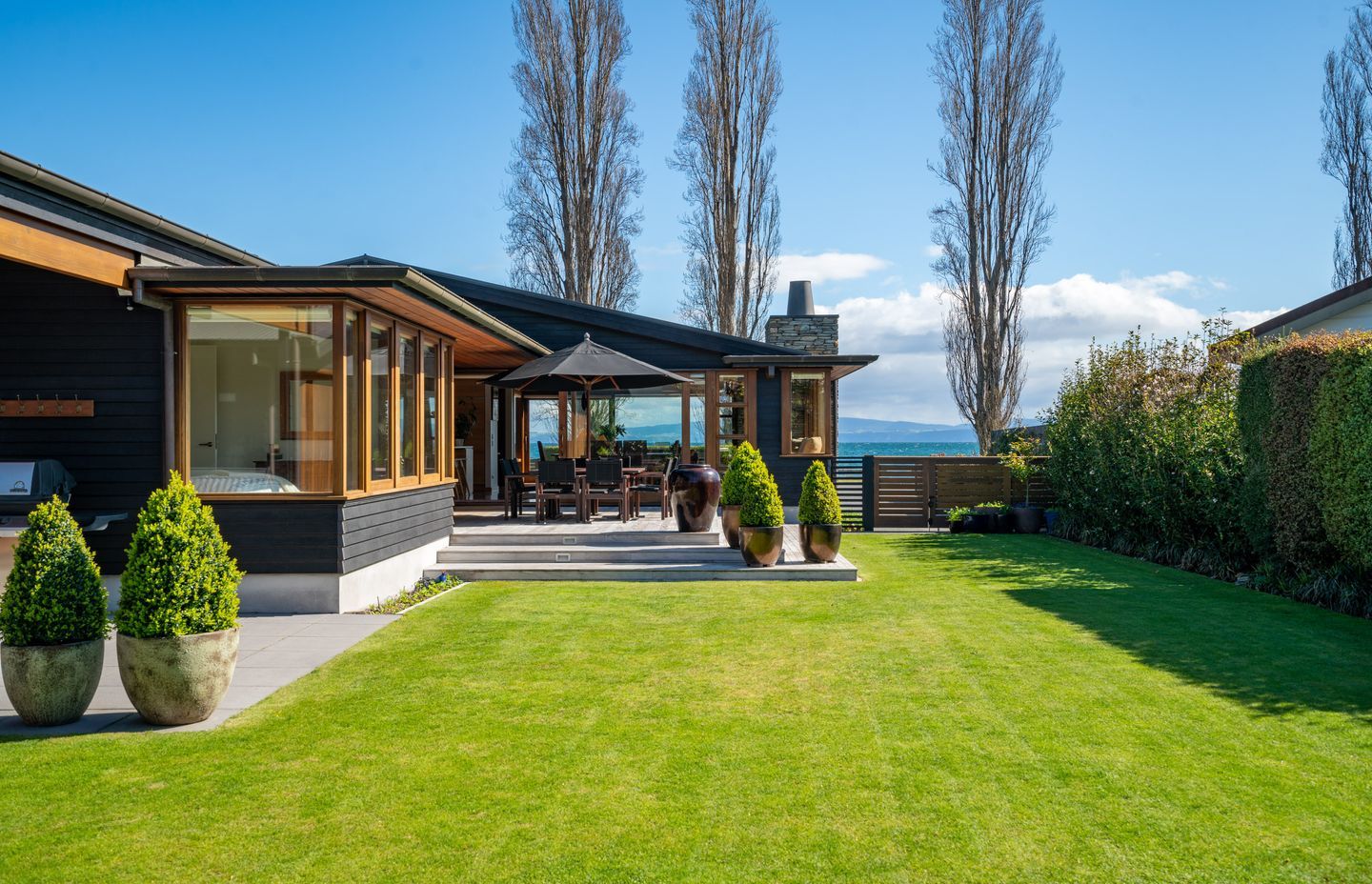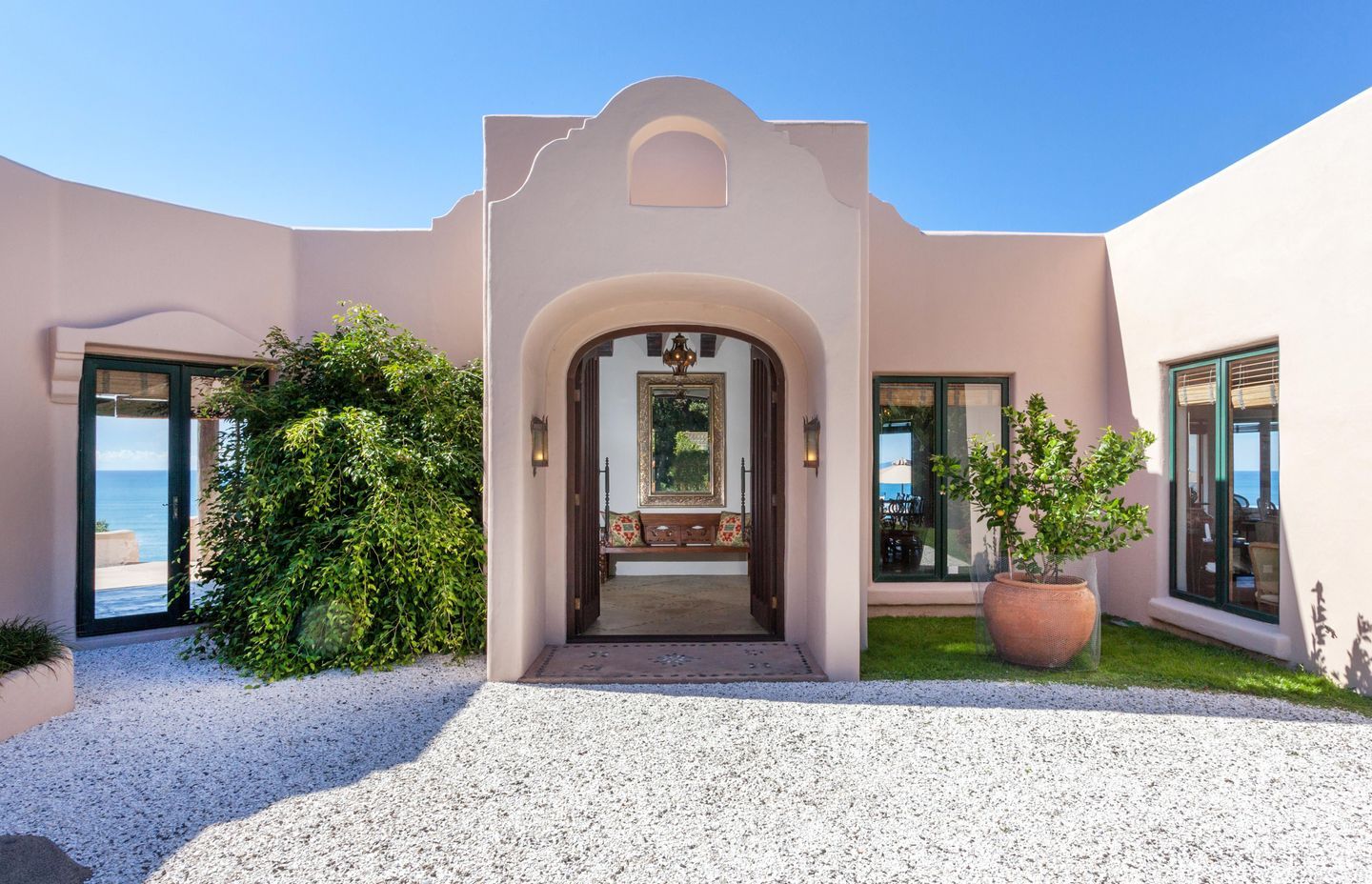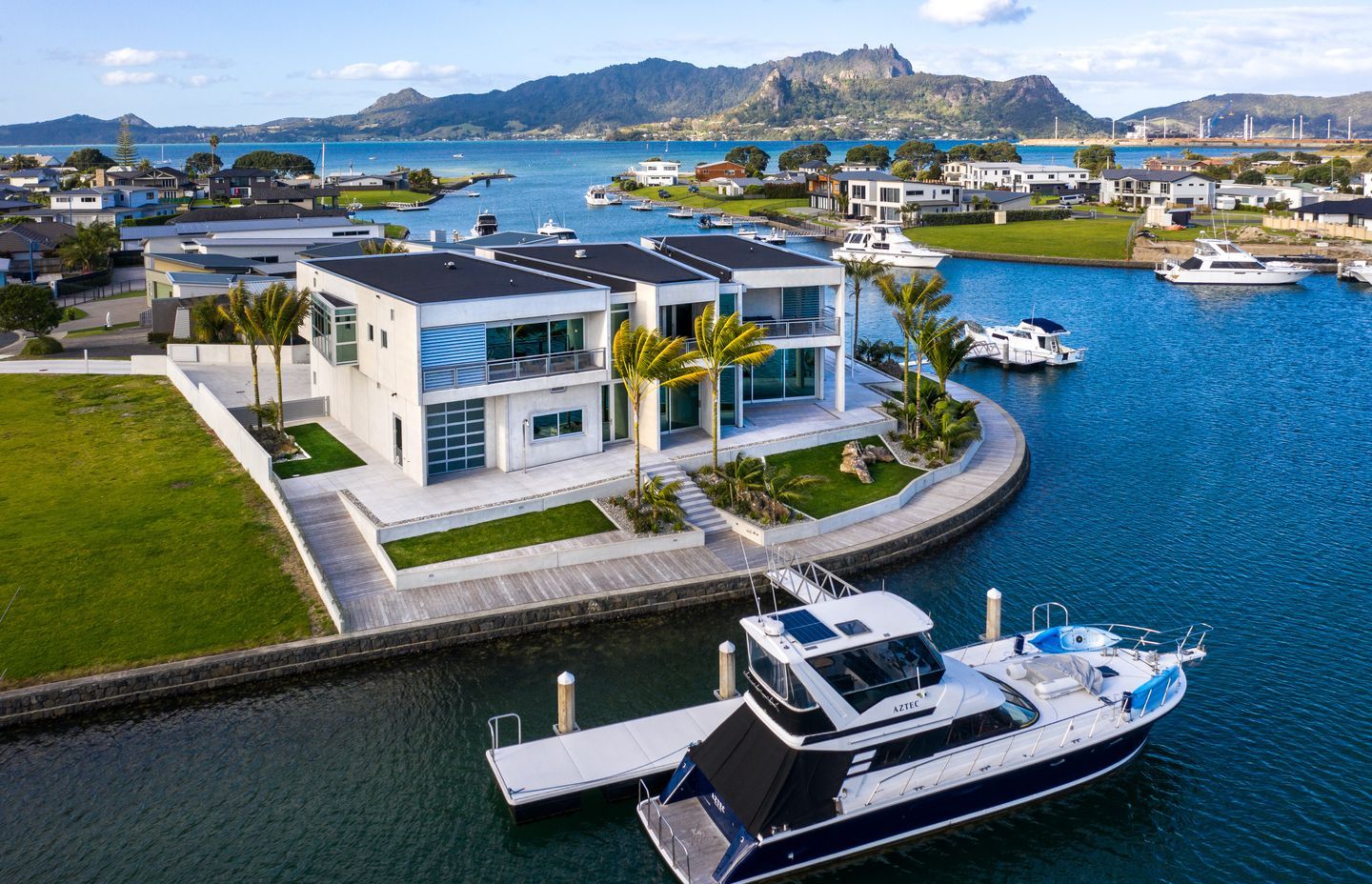New Horizons
Written by
21 October 2020
•
6 min read

American 20th century natural science writer, Loren Eiseley once said: “If there is magic on this planet, it is contained in water.”
Perhaps that sense of magic is what makes us gravitate towards waterfront settings both for recreation and as an aspirational place to reside. Certainly, many of us have strong childhood memories of holidays on the lake or at the beach or on the banks of a river. We are lucky in New Zealand that we have so much water to choose from and the opportunity to live a waterfront life.
For more than 25 years, Bayleys has celebrated life at the water’s edge with their annual Waterfront magazine, which features lakeside, river’s edge or beachfront homes for sale from throughout New Zealand and the Pacific Islands.
Bayleys Takapuna residential salesperson Victoria Bidwell has been working on Auckland’s North Shore for over 15 years and is a specialist in marketing top-end waterfront homes for sale.
“To feature in Bayleys’ Waterfront magazine, a property needs to have water frontage on the title, be it river, lake, sea or clifftop. The only exception to that is if there is public land between the property and access to the water.”
“You can usually find a good mix of waterfront properties for sale and Bayleys’ Waterfront magazine is a great resource of all manner of waterfront properties from across the country and the Pacific.
“These properties are usually tightly held within family groups, which means there does tend to be limited stock. For example, I have two waterfront properties on the books at the moment both of which are being offered to the market for the first time in 50 years.”

Are all waterfront properties created equal?
“Certainly, on Auckland’s North Shore, beachfront properties achieve higher values than lakefront properties, while harbour-facing properties tend to be more affordable than sea-facing properties. Aspect is also a big selling point. North and north-east facing properties are always more desirable as they have the most natural light, which, when combined with a water frontage is hard to beat.
“Generally speaking, the location of the waterfront property, too, is important. Waterfront properties situated close to a strong urban centre are more desirable than those in remote settings and can command a sale price two to three times higher than an equivalent rural property.
Victoria says the type of property is another important factor when it comes to waterfront homes.
“There are very few freehold apartments in waterfront locations, so most tend to be leasehold, which means that in addition to body corporate fees and council rates there is likely to be a ground lease cost as well. Additionally, you could also find cross-lease situations which will need to be taken into account. That said, because of these considerations, waterfront apartments can offer a reasonable introduction into the waterfront property market.
Another type of waterfront property that is becoming more common, says Victoria, is the ‘estate’ property in which individual parcels are offered within a much larger parcel of land, usually a farm.
“From Northland to just north of Auckland and even down as far as Otago, coastal, lake and river properties are being sectioned off as owners realise the potential for this type of property and purchasers, too, see the benefits of living within an estate-style setting.
“Again, there are no set rules; each estate will have its own covenants that may bring with them additional costs. As with purchasing any property, due diligence and careful consideration will unearth any ‘added extras’. Always make sure to consult your lawyer.”

Are there any additional costs to buying a waterfront property and what about development potential?
“Naturally, a waterfront property is going to carry a premium, however, insurance for waterfront properties has become more expensive too, especially beachfront properties, as the projections around rising sea levels have caused some concern.
“Clifftop properties could also carry an additional premium depending on the risk of erosion, which may require additional engineering costs to stabilise potentially unstable ground or to remediate storm damage. Similarly, some coastal properties may require the property owner to undertake dune restoration works as part of the sale agreement.”
“Essentially, the greater the perceived risk the greater the insurance premium is going to be,” says Victoria.
“With regards to development potential, this will differ from council area to council area. In Auckland, the Unitary Plan has resulted in a number of waterfront properties having their zoning changed so that now, largely, waterfront properties tend to be single-dwelling properties that cannot be further developed.
“In many cities and towns outside of Auckland, the rules are more relaxed and canny investors in those regions can purchase properties with the long-term view to developing them when their own families have grown and possibly moved away.

Does waterfront always guarantee direct water access?
“No, it doesn’t. Sometimes you’ll have to cross public land and a lot of clifftop properties don’t allow direct water access. If these properties don’t have stairs or some way of directly accessing the water already in place, it is unlikely to be granted.
“It is also very improbable that you would be allowed to build out over the water. You can, of course, apply for consent but it is unlikely to be granted. An existing boatshed or jetty could potentially be upgraded but again that would come down to consent.
“If your property includes riparian rights as part of the title, then you would be allowed to build a jetty, however, you need to take into account that the foreshore is considered public land and as any structure such as a jetty would be on the foreshore, it would be publicly accessible, which means you couldn’t stop anyone from tying up alongside it. There is some privately held foreshore, but this is very rare.”

Are waterfront properties always a ‘safe bet’ as an investment?
“Yes, I believe so. In my experience, the people who have made the most profit over time are those with waterfront properties. Everywhere in the world, not just New Zealand, waterfront comes at a premium and while the process is the same as purchasing any property, it is best to speak with a specialist who has experience in the waterfront market.
“Certainly at the moment, with the world in a state of flux right now, a lot of expat Kiwis are reevaluating their personal and familial priorities and for many of them their own childhood memories of living a waterfront lifestyle are a strong draw.
“Similarly, for many of us already here, it is a time of soul searching and asking ourselves: ‘what sort of lifestyle am I wanting for myself and my family’.”
Looking for a waterfront property? The 2020/21 issue of Waterfront magazine is out now.
